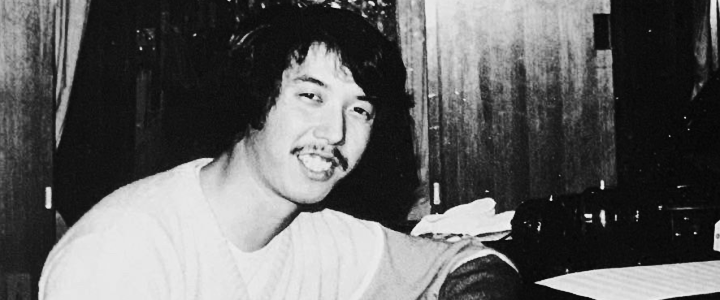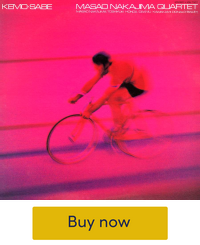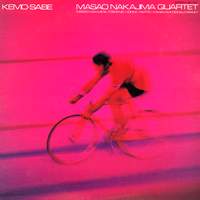Recording of the Week,
Masao Nakajima Quartet, 'Kemo-Sabe'

By the late 1970s, Japanese contemporary music was right at the forefront of modern musical technology; pop music was embracing the sounds of funk and electronica, and even jazz was beginning to incorporate synthesisers and electric guitars, influenced by the sounds of the American fusion scene across the pond. Kemo-Sabe, originally released in 1979 on Yupiteru Records – a label active in Japan from the late ‘70s to mid ‘80s – was the debut album of Masao Nakajima, having only just returned home from a stint in the United States. Written and released at a time when the stylistic choices of jazz music were bursting out in an all manner of different directions, besides fusion many jazz bands were more interested in the contemporary sounds of spiritual jazz and free improvisation than they were traditional acoustic quartets. While Nakajima had experimented with synthesisers and the Hammond organ, his first studio outing is decidedly more traditional – an acoustic quartet record that features Nakajima alongside saxophonist Toshiyuki Honda, bassist Osamu Kawakami, and drummer Donald Bailey.
Kawakami has a handful of credits to his name including sessions with saxophonist Sadao Watanabe, while Honda led the popular fusion group Burning Waves, and of course Donald Bailey is perhaps best known as the drummer in Jimmy Smith’s organ trio as well as a number of recording credits for Blue Note Records – Bailey was living in Japan at the time and Kemo Sabe was one of many records you can hear him on from that time. It’s likely that this acoustic lineup – without a single electric guitar or synthesiser in sight – accounted for Kemo-Sabe’s originally rather low sales, though he kept up his career as a working musician; you can hear him playing piano on city pop artist Tomoko Aran’s Fuyukukan (‘floating space’), whose song ‘Midnight Pretenders’ was recently sampled by pop artist The Weeknd. As with many of these obscure Japanese reissues, it’s Barely Breaking Even (BBE) handling things as usual, with a fully licensed and authorised, lovingly packaged reproduction.

The quartet manage to conjure the impression of a well-practised group many years into its existence, but Nakajima had not long assembled the group before they began the recording process. Bailey stands out in his role as busy yet tasteful, while he and Kawakami are practically a single unit with how tight their performances are. The eponymous opening track has Nakajima flexing his keyboard chops with fluid runs and bluesy trills, while the one original he contributes, ‘Beloved Diane’, has him sprinkling some dense Debussian chords into its opening before the quartet settles into a nice strolling tempo – a somewhat noir-tinged tune that breaks up the otherwise fairly be-boppy proceedings. Other than Nakajima the other member of the ensemble that really makes their presence known on Kemo-Sabe is Honda, who crops up occasionally to provide a solo or gets more involved in leading tracks; a favourite moment comes when he swaps out his sax for the flute on the Herbie Hancock tune ‘Tell Me a Bedtime Story’, its smooth nocturnal melody facilitating a delicate atmosphere, meanwhile Coltrane’s ‘Moment’s Notice’ grants Honda and the rest of the ensemble a chance to go a little more off-the-page.
Nakajima’s music certainly has an air of tradition, but it’s his boundless expression that makes Kemo-Sabe feel like anything but a stale reactionary record; even if he’s not pushing his music into any new aesthetic territories he’s far from phoning it in. At roughly 35 minutes total, it’s an easily digestible collection that proves to be surprisingly varied; Kemo Sabe would be the only album from Nakajima’s jazz quartet, and even if it took over four decades for it to get its due, it’s good to see that people are finally listening.
Available Formats: CD, MP3, FLAC, Hi-Res FLAC




